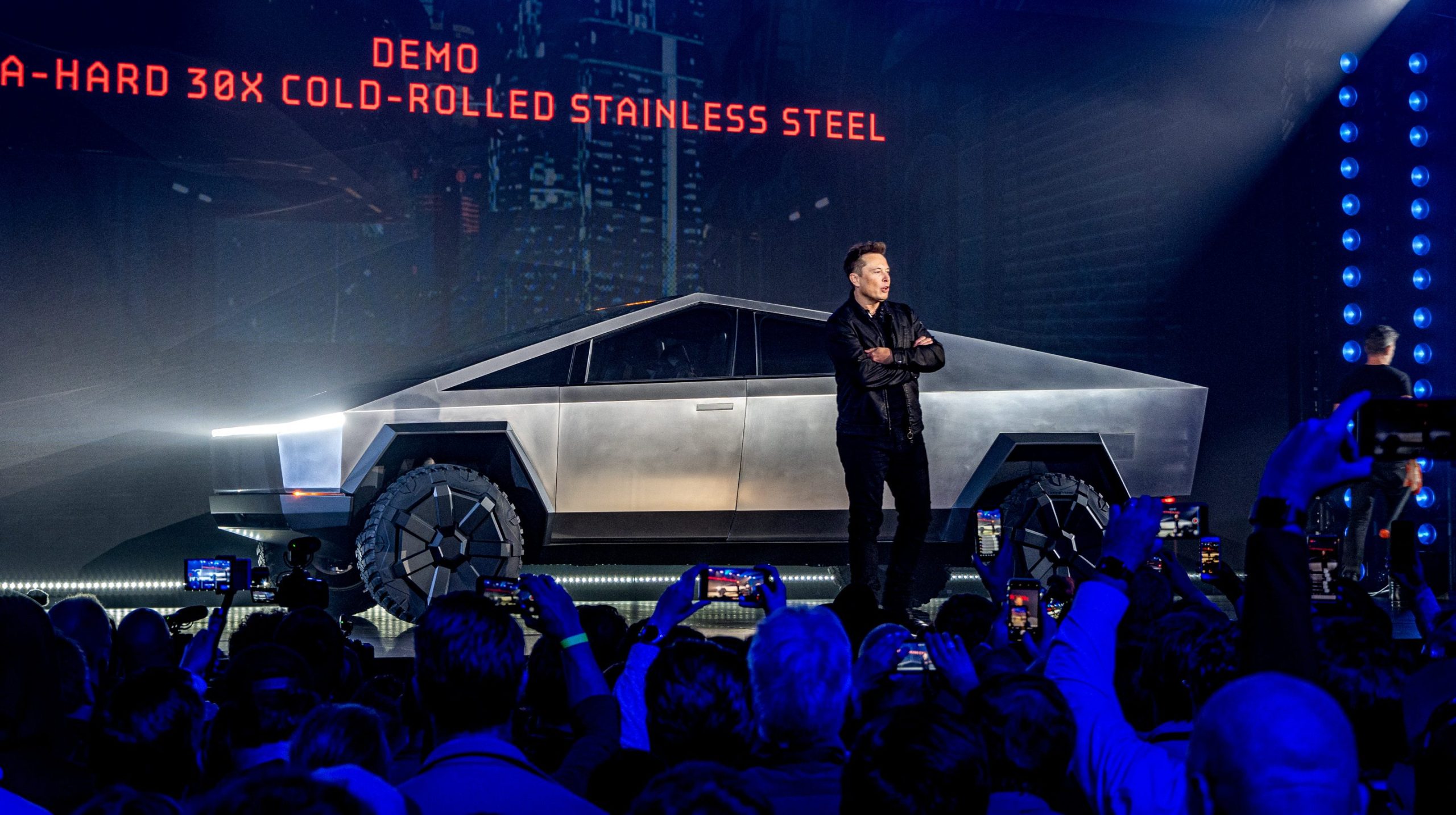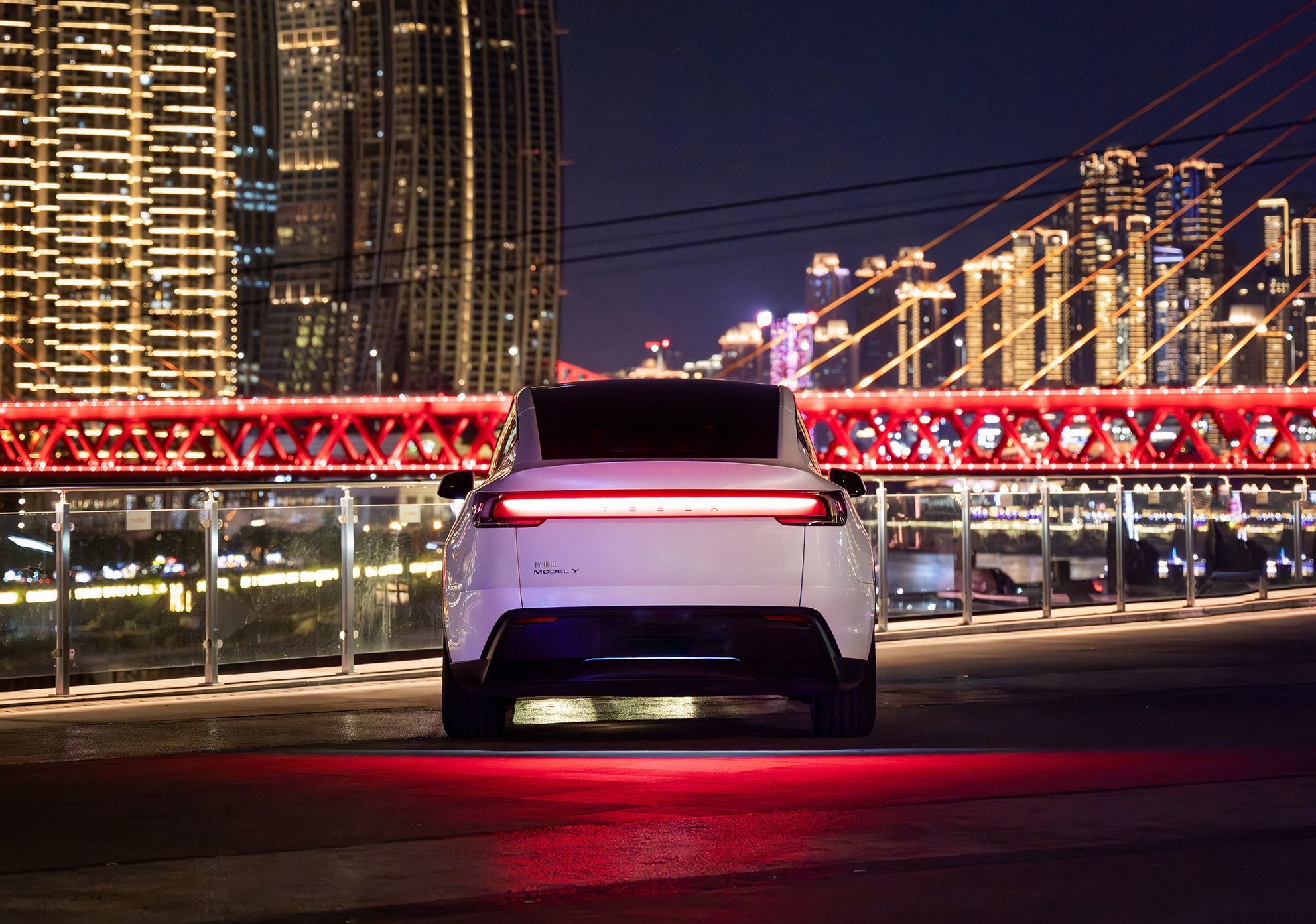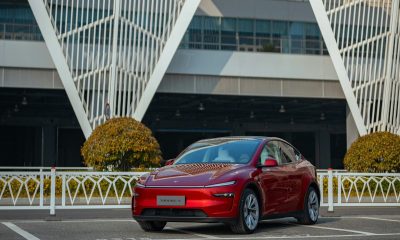

News
EXCLUSIVE: Tesla Cybertruck battery packs to be built at Fremont Factory
Tesla plans to start building battery packs for the upcoming Cybertruck on a new cell manufacturing line in the Fremont factory, people with knowledge of the project told Teslarati.
In August, we reported that Tesla had filed to build a new battery manufacturing equipment line on the second floor of the Fremont factory. This filing, which was submitted to the City of Fremont on August 30, relates to the module portion of the line, Tesla said.
Tesla described the project as “CTA Battery B-Build,” the filing shows.
Credit: City of Fremont
Tesla is ultimately planning to build the Cybertruck in Austin at Gigafactory Texas. However, battery cells and cell pack manufacturing are not yet ready to take off at the new Tesla plant, which is located just outside Austin. Tesla applied to build a battery and cathode manufacturing building at Gigafactory Texas earlier this year, and while the project has been started, it likely will not be ready for the Cybertruck’s projected launch in mid-2023.
With an extensive order log that features over 1 million total reservations, Tesla is preparing for Cybertruck manufacturing by building the battery packs at a plant that is already operational. The Fremont facility, the only Tesla plant manufacturing all four vehicles the company builds, was ultimately chosen for the task of kicking off Cybertruck pack manufacturing, Teslarati confirmed with sources familiar with the matter.
Cybertruck Battery Pack Manufacturing will start in Fremont
Sources familiar with the matter told Teslarati the second-floor manufacturing line that Tesla filed to build in August will manufacture the Cybertruck packs. Tesla will take the 4680 battery cells produced at the Kato Road facility or another previously utilized cell design manufactured at Gigafactory Nevada and put them into modules and packs that are manufactured on the new Fremont battery line.
Currently, the line is being completed by construction crews on site, who are making daily progress. Additionally, Tesla engineers are installing automation equipment to produce the Cybertruck battery packs.
Tesla did not immediately respond to our request for comment.
Kicking Cybertruck Module Production into “Plaid Mode”
Tesla is also working hard to kick off Cybertruck pack production as time is extremely limited. Tesla has a series of vehicles, referred to as “carriers,” which transport batteries throughout the factory. The company recently ordered around 300 new carriers for the factory as cell and battery pack manufacturing is set to ramp drastically.
The sources also said the Cybertruck battery pack line is currently being tested with Tesla’s automation equipment. Tesla is working to ramp the line quickly as Cybertruck vehicle manufacturing is planned for next year at Gigafactory Texas.
2023: The Year of the Tesla Cybertruck?
Tesla is set to build the Cybertruck at Gigafactory Texas. After unveiling the all-electric pickup in 2019, Tesla has delayed initial production on several occasions due to supply chain issues and other challenges.
“In 2022, supply chain will continue to be the fundamental limiter of output across all factories,” Musk said during Tesla’s Q4 and 2021 Full Year Earnings Call in January. So the chip shortage, while better than last year, is still an issue. And, yeah, so that’s — there are multiple supply chain challenges.”
Musk went on to say that the challenges would delay the launch of any new products in 2022. “We will, however, do a lot of engineering and tooling, what not to create those vehicles: Cybertruck, Semi, Roadster, Optimus, and be ready to bring those to production hopefully next year. That is most likely.”
Although Tesla is planning to begin deliveries of the Semi on December 1, all other projects have been effectively delayed until next year, but preparation to launch those projects is evidently a priority within the factories.
4680 cells are not constrained but are they going into the Cybertruck?
Tesla’s Vice President of Powertrain Drew Baglino detailed earlier this year that the company was not constrained in terms of 4680 battery cell availability.
“So throughout 2021, we focused on growing cell supply alongside our in-house 4680 effort to provide us flexibility and insurance as we attempt to grow as fast as possible,” Baglino said on the Q4 and Full Year 2021 Earnings Call in January. “4680 cells are not a constraint to our 2022 volume plans based on the information we have.”
What Baglino said next on the call likely indicates what Tesla was preparing the Cybertruck for: pack manufacturing at Fremont, shipping the packs to Texas, and then installing them into vehicles:
“But we are making meaningful progress of the ramp curve in Kato. We’re building 4680 structural packs every day, which are being assembled into vehicles in Texas. I was driving one yesterday and the day before. And we believe our first 4680 vehicles will be delivered this quarter.”
The Kato Road facility has supported Tesla’s 4680 cell needs thus far. The 4680 packs were installed on some Gigafactory Texas-built Model Ys, and were reviewed by Munro Live earlier this year. Fremont will likely support Cybertruck pack manufacturing for some time, utilizing cells from Kato Road and from suppliers like Panasonic when they ultimately being manufacturing the battery for Tesla.
As Cybertruck manufacturing ramps up into late 2023, 2024, and beyond, packs will then be at Fremont and Gigafactory Texas, which would likely entirely support Cybertruck production.
I’d love to hear from you! If you have any comments, concerns, or questions, please email me at joey@teslarati.com. You can also reach me on Twitter @KlenderJoey, or if you have news tips, you can email us at tips@teslarati.com.
News
Tesla China breaks 8-month slump by selling 71,599 vehicles wholesale in June
Tesla China’s June numbers were released by the China Passenger Car Association (CPCA) on Tuesday.

Tesla China was able to sell 71,599 vehicles wholesale in June 2025, reversing eight consecutive months of year-over-year declines. The figure marks a 0.83% increase from the 71,599 vehicles sold wholesale in June 2024 and a 16.1% jump compared to the 61,662 vehicles sold wholesale in May.
Tesla China’s June numbers were released by the China Passenger Car Association (CPCA) on Tuesday.
Tesla China’s June results in focus
Tesla produces both the Model 3 and Model Y at its Shanghai Gigafactory, which serves as the company’s primary vehicle export hub. Earlier this year, Tesla initiated a changeover for its best-selling vehicle, the Model Y, resulting in a drop in vehicle sales during the first and second quarters.
Tesla’s second-quarter China sales totaled 191,720 units including exports. While these numbers represent a 6.8% year-over-year decline for Tesla China, Q2 did show sequential improvement, rising about 11% from Q1 2025, as noted in a CNEV Post report.
For the first half of the year, Tesla sold 364,474 vehicles wholesale. This represents a 14.6% drop compared to the 426,623 units sold wholesale in the first half of 2024.
China’s competitive local EV market
Tesla’s position in China is notable, especially as the new Model Y is gaining ground in the country’s BEV segment. That being said, Tesla is also facing competition from impressive local brands such as Xiaomi, whose new YU7 electric SUV is larger and more affordable than the Model Y.
The momentum of the YU7 is impressive, as the vehicle was able to secure 200,000 firm orders within three minutes and over 240,000 locked-in orders within 18 hours. Xiaomi’s previous model, the SU7 electric sedan, which is aimed at the Tesla Model 3, also remains popular, with June deliveries surpassing 25,000 units for the ninth straight month.
While China’s EV market is getting more competitive, Tesla’s new Model Y is also ramping its production and deliveries. Needless to say, Tesla China’s results for the remaining two quarters of 2025 will be very interesting.
Elon Musk
Tesla reveals it is using AI to make factories more sustainable: here’s how
Tesla is using AI in its Gigafactory Nevada factory to improve HVAC efficiency.

Tesla has revealed in its Extended Impact Report for 2024 that it is using Artificial Intelligence (AI) to enable its factories to be more sustainable. One example it used was its achievement of managing “the majority of the HVAC infrastructure at Gigafactory Nevada is now AI-controlled” last year.
In a commitment to becoming more efficient and making its production as eco-friendly as possible, Tesla has been working for years to find solutions to reduce energy consumption in its factories.
For example, in 2023, Tesla implemented optimization controls in the plastics and paint shops located at Gigafactory Texas, which increased the efficiency of natural gas consumption. Tesla plans to phase out natural gas use across its factories eventually, but for now, it prioritizes work to reduce emissions from that energy source specifically.
It also uses Hygrometric Control Logic for Air Handling Units at Giafactory Berlin, resulting in 17,000 MWh in energy savings each year. At Gigafactory Nevada, Tesla saves 9.5 GWh of energy through the use of N-Methylpyrrolidone refineries when extracting critical raw material.
Perhaps the most interesting way Tesla is conserving energy is through the use of AI at Gigafactory Nevada, as it describes its use of AI to reduce energy demand:
“In 2023, AI Control for HVAC was expanded from Nevada and Texas to now include our Berlin-Brandenburg and Fremont factories. AI Control policy enables HVAC systems within each factory to work together to process sensor data, model factory dynamics, and apply control actions that safely minimize the energy required to support production. In 2024, this system achieved two milestones: the majority of HVAC infrastructure at Gigafactory Nevada is now AI-controlled, reducing fan and thermal energy demand; and the AI algorithm was extended to manage entire chiller plants, creating a closed-loop control system that optimizes both chilled water consumption and the energy required for its generation, all while maintaining factory conditions.”
Tesla utilizes AI Control “primarily on systems that heat or cool critical factory production spaces and equipment.” AI Control communicates with the preexisting standard control logic of each system, and any issues can be resolved by quickly reverting back to standard control. There were none in 2024.
Tesla says that it is utilizing AI to drive impact at its factories, and it has proven to be a valuable tool in reducing energy consumption at one of its facilities.
Elon Musk
Tesla analysts believe Musk and Trump feud will pass
Tesla CEO Elon Musk and U.S. President Donald Trump’s feud shall pass, several bulls say.

Tesla analysts are breaking down the current feud between CEO Elon Musk and U.S. President Donald Trump, as the two continue to disagree on the “Big Beautiful Bill” and its impact on the country’s national debt.
Musk, who headed the Department of Government Efficiency (DOGE) under the Trump Administration, left his post in May. Soon thereafter, he and President Trump entered a very public and verbal disagreement, where things turned sour. They reconciled to an extent, and things seemed to be in the past.
However, the second disagreement between the two started on Monday, as Musk continued to push back on the “Big Beautiful Bill” that the Trump administration is attempting to sign into law. It would, by Musk’s estimation, increase spending and reverse the work DOGE did to trim the deficit.
Every member of Congress who campaigned on reducing government spending and then immediately voted for the biggest debt increase in history should hang their head in shame!
And they will lose their primary next year if it is the last thing I do on this Earth.
— Elon Musk (@elonmusk) June 30, 2025
President Trump has hinted that DOGE could be “the monster” that “eats Elon,” threatening to end the subsidies that SpaceX and Tesla receive. Musk has not been opposed to ending government subsidies for companies, including his own, as long as they are all abolished.
How Tesla could benefit from the ‘Big Beautiful Bill’ that axes EV subsidies
Despite this contentious back-and-forth between the two, analysts are sharing their opinions now, and a few of the more bullish Tesla observers are convinced that this feud will pass, Trump and Musk will resolve their differences as they have before, and things will return to normal.
ARK Invest’s Cathie Wood said this morning that the feud between Musk and Trump is another example of “this too shall pass:”
BREAKING: CATHIE WOOD SAYS — ELON AND TRUMP FEUD “WILL PASS” 👀 $TSLA
She remains bullish ! pic.twitter.com/w5rW2gfCkx
— TheSonOfWalkley (@TheSonOfWalkley) July 1, 2025
Additionally, Wedbush’s Dan Ives, in a note to investors this morning, said that the situation “will settle:”
“We believe this situation will settle and at the end of the day Musk needs Trump and Trump needs Musk given the AI Arms Race going on between the US and China. The jabs between Musk and Trump will continue as the Budget rolls through Congress but Tesla investors want Musk to focus on driving Tesla and stop this political angle…which has turned into a life of its own in a roller coaster ride since the November elections.”
Tesla shares are down about 5 percent at 3:10 p.m. on the East Coast.
-

 Elon Musk2 days ago
Elon Musk2 days agoTesla investors will be shocked by Jim Cramer’s latest assessment
-

 News7 days ago
News7 days agoTesla Robotaxi’s biggest challenge seems to be this one thing
-

 News2 weeks ago
News2 weeks agoTesla’s Grok integration will be more realistic with this cool feature
-

 Elon Musk2 weeks ago
Elon Musk2 weeks agoElon Musk slams Bloomberg’s shocking xAI cash burn claims
-

 News2 weeks ago
News2 weeks agoTesla China roars back with highest vehicle registrations this Q2 so far
-

 News2 weeks ago
News2 weeks agoTexas lawmakers urge Tesla to delay Austin robotaxi launch to September
-

 News2 weeks ago
News2 weeks agoTesla dominates Cars.com’s Made in America Index with clean sweep
-

 Elon Musk1 week ago
Elon Musk1 week agoFirst Look at Tesla’s Robotaxi App: features, design, and more

















